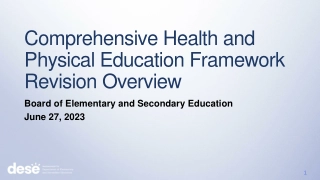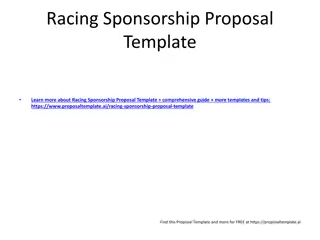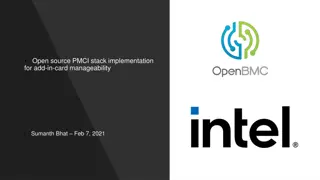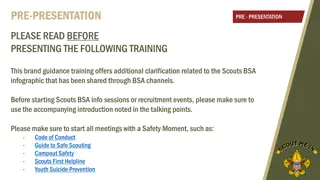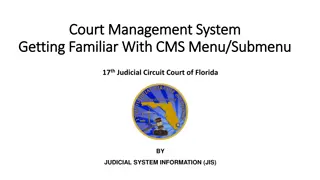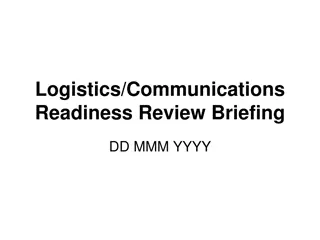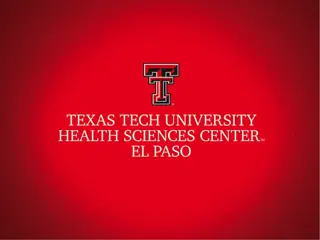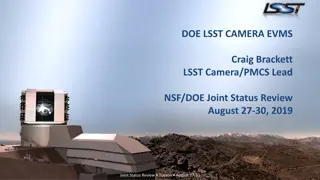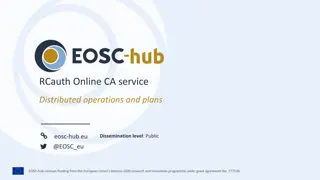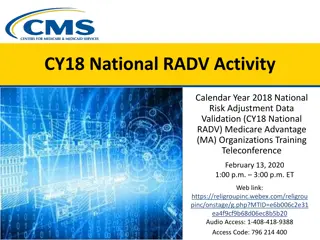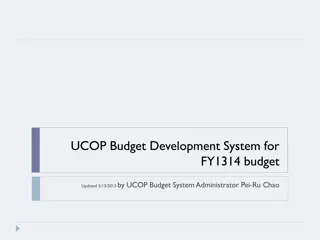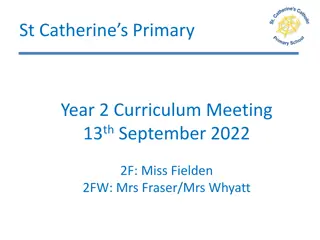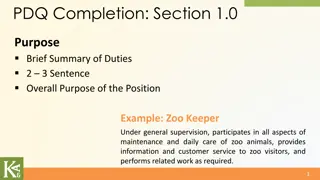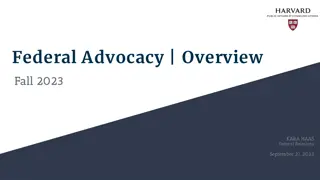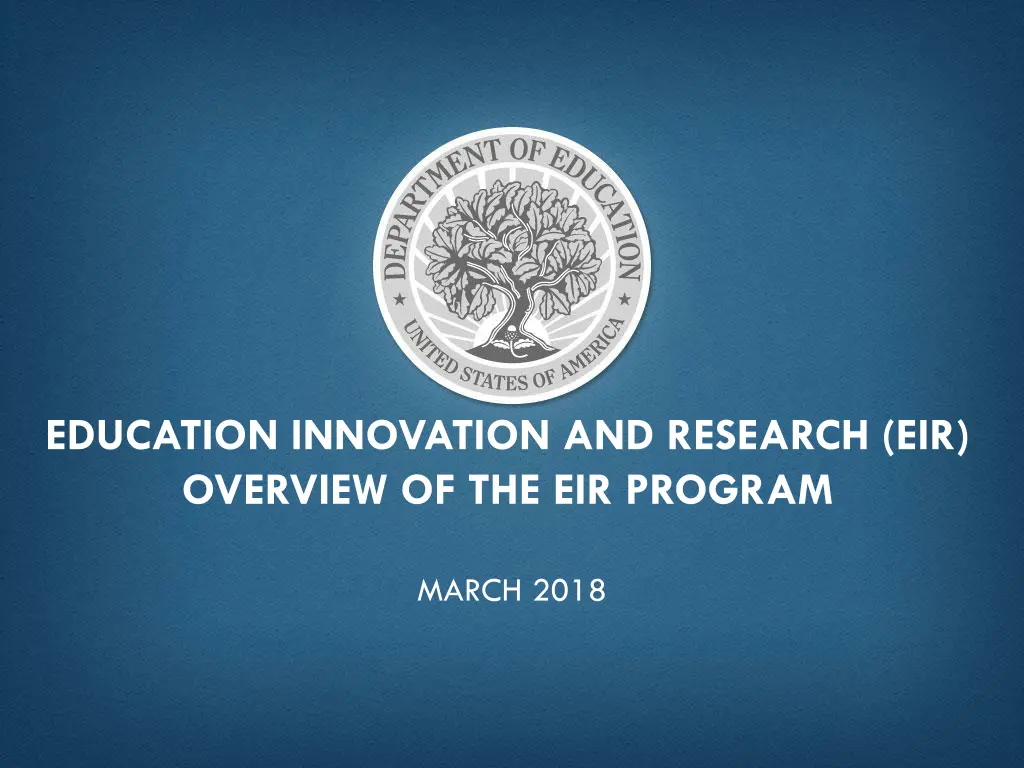
Innovative Education Research Program Overview 2018
Explore the Education Innovation and Research (EIR) program focusing on addressing challenges in education to enhance student achievement. Learn about grant opportunities for developing and scaling effective educational practices. EIR aims to build an evidence base for successful education strategies to shape policies and programs.
Download Presentation

Please find below an Image/Link to download the presentation.
The content on the website is provided AS IS for your information and personal use only. It may not be sold, licensed, or shared on other websites without obtaining consent from the author. If you encounter any issues during the download, it is possible that the publisher has removed the file from their server.
You are allowed to download the files provided on this website for personal or commercial use, subject to the condition that they are used lawfully. All files are the property of their respective owners.
The content on the website is provided AS IS for your information and personal use only. It may not be sold, licensed, or shared on other websites without obtaining consent from the author.
E N D
Presentation Transcript
EDUCATION INNOVATION AND RESEARCH (EIR) OVERVIEW OF THE EIR PROGRAM MARCH 2018
PROBLEMS FACING EDUCATION EIR s GOALS (as referenced in the Notices Inviting Applications) EIR aims to explore new ways of addressing persistent challenges that other educators can build upon and learn from. There are both persistent and emerging challenges for which we need better solutions to improve our schools and to promote greater student achievement and attainment, particularly among high need students. Too often, promising practices remain relatively isolated and do not get widely implemented outside of their original settings. EIR aims to learn how to replicate and scale successful practices in new schools, districts, and States while addressing the barriers to scale, such as cost structures and implementation fidelity. There are not enough rigorous studies of educational practices available, and too often, evidence of effectiveness is not used to shape policy or program implementation decisions EIR aims to build the evidence base on effective educational practices.
EIR: A MODEL TIERED EVIDENCE GRANT PROGRAM Early-Phase Develops and tests innovative education practices practices and regionally or nationally scales those practices Applicants must demonstrate a rationale based on high quality research findings of evaluation Up to $4 million per award, up to 60 months (5 years) of funding (5 years) of funding 8-16 awards anticipated 4-10 awards anticipated 1-3 awards anticipated Mid-Phase Expansion Further develops innovative education Scales nationally those practices demonstrated to be effective Applicants must meet Moderate Evidence standard Applicants must meet Strong Evidence standard Up to $8 million per award, up to 60 months Up to $15 million per award, up to 60 months (5 years) of funding 3
KEY COMPONENTS OF EIR Issue Education Innovation and Research (EIR) 3 types of grants, with evidence determining the level of funding Local Educational Agency, State Educational Agency, Bureau of Indian Education, and Nonprofit Reserves 25% of funding for rural grantees serving rural areas Field-Initiated Priorities + ED-determined Invitational Priorities Requires 10% Matching Tiered Evidence Structure Eligibility Rural Priorities Matching 4
EARLY-PHASE GRANTS Grants support education practices that are new compared to others that are underway nationally. Applicants must demonstrate a rationale based on high quality research findings of evaluation Projects are encouraged to focus on continuous improvement and iterative development to increase potential effectiveness. Evaluations should determine whether the practices can successfully improve student achievement and attainment, particularly for high-need students. 5
MID-PHASE GRANTS Grants support projects supported by moderate evidence. Grants aim to refine and expand use of practices, and to scale them to regional or national level. Grants aim to learn more about contexts in which the practices are most effective and cost-effective. Grants aim to build knowledge base of effective practices. Evaluations of projects aim to measure project impact with new populations and in new settings, and to identify the core elements that can be adopted or replicated by others. 6
EXPANSION GRANTS Grants support projects supported by strong evidence. Grants aim to identify the conditions in which the program is most effective. Grants should determine whether impacts can be successfully reproduced and sustained over time.. Grants are encouraged to be sustained and to continue to grow even after EIR funding ends. 7
OTHER EIR INFORMATIONAL RECORDING TOPICS Eligibility Matching and Other General Requirements Priorities and Evidence Requirements Selection Criteria and Scoring Preparing a Budget Narrative Documents to Include in an Application Applying in Grants.gov 8
DATES TO REMEMBER Expansion (84.411A), Mid-phase (84.411B), and Early- phase (84.411C) applications Applications available: April 19th, 2018 Deadline for transmitting applications: 4:30:00 PM Washington DC time June 5th, 2018 Awards announced by: September 30th, 2018 9
EDUCATION INNOVATION AND RESEARCH (EIR) OVERVIEW OF THE EIR PROGRAM MARCH 2018

![❤[READ]❤ Deep Space Craft: An Overview of Interplanetary Flight (Springer Praxis](/thumb/21511/read-deep-space-craft-an-overview-of-interplanetary-flight-springer-praxis.jpg)


